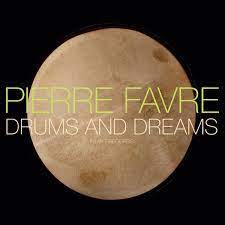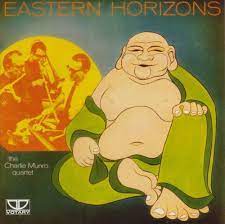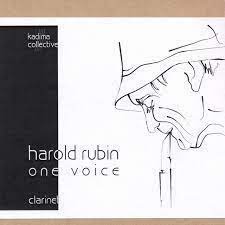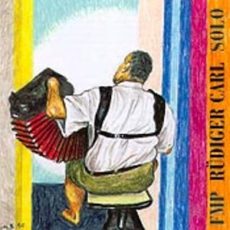
Daily Dose Of Jazz…
Phillip Rista Nimmons was born on June 3, 1923 in Kamloops, British Columbia, Canada. He studied clarinet at the Juilliard School and composition at the Royal Conservatory of Music in Toronto, Canada. In 1953 Nimmons formed the ensemble Nimmons ‘N’ Nine, which later he led during his weekly radio show on CBC radio. This ensemble eventually grew to 16 musicians in 1965 and was active intil 1980.
He joined the University of Toronto in 1973 and as an educator, Nimmons has made substantial contributions to the study of jazz. In 1960, Along with Oscar Peterson, he founded the Advanced School of Contemporary Music in Toronto, Canada. He was involved in the development of the jazz performance program at the University of Toronto.
Nimmons received the first Juno Award given in the Juno Awards jazz category, for his album Atlantic Suite. His composition The Torch was commissioned for the 1988 Winter Olympics in Calgary, Alberta, Canada and was performed at the Olympics by a big band led by Rob McConnell.
In 1993, he was made an Officer of the Order of Canada, received the Order of Ontario, the Jazz Education Hall of Fame honor, the Lifetime Achievement Award by SOCAN and the Governor General’s Performing Arts Award, Canada’s highest honour in the performing arts, for his lifetime contribution to popular music.
Clarinetist, composer, bandleader, and educator Phil Nimmons, known for playing in the free jazz and mainstream styles, has recorded seventeen albums as a leader and at 98 is still involved in music.
More Posts: clarinet,composeer,educator,history,instrumental,jazz,music

Daily Dose Of Jazz…
Pierre Favre was born June 2, 1937 in Le Locle, Switzerland. Not much is known about his childhood or his early music career.
He recorded the album Singing Drums in 1984 on the ECM label with Paul Motian and Nana Vasconcelos. He also appears on John Surman’s album, Such Winters of Memory released the year beore.
He has recorded with several well-known musicians, including Tamia, Michel Godard, Mal Waldron, Paul Giger, Jiří Stivín, Michel Portal, Irene Schweizer, Samuel Blaser, the ARTE Quartett, Barre Phillips and the London Jazz Composers Orchestra.
He has recorded six albums as a leader and drummer and percussionist Pierre Favre continues to explore his craft, perform and record.
More Posts: bandleader,drums,history,instrumental,jazz,music,percussion

Daily Dose Of Jazz…
Charles Robert Munro was born on May 22, 1917 in Christchurch, New Zealand. While in his teens he became quite proficient on several saxophones and by 21 had moved to Sydney, Australia where he played in the bands led by Myer Norman and Wally Parks. In addition he worked as a sideman on various nightclub, theater, and ship gigs.
Serving in the military during World War II, Charlie went on to work with Wally Norman at the Roosevelt nightclub in Sydney. In 1950 he played with Bob Gibson, then joined the Australian Broadcasting Commission’s dance band in 1954, continuing to perform with the group through 1976 as a composer and arranger.
He worked extensively with Bryce Rohde in the 1960s, participating in many of Rohde’s Australian jazz experiments. He led his own bands toward the end of his career, and also worked with Georgina de Leon.
Saxophonist and flutist Charlie Munro, who also played the cello and delved into free jazz movement, transitioned on December 9, 1985, in Sydney.
More Posts: arranger,bandleader,cello,composer,flute,history,instrumental,jazz,music,saxophone

Daily Dose Of Jazz…
Harold Rubin was born on May 13, 1932 in Johannesburg, South Africa of Israeli descent. Attending Jeppe High School for Boys he received private instruction in the fine arts and classical clarinet as a teenager. He developed a fascination with jazz and began playing at the Skyline Night Club at eighteen. He went on to enroll as an architecture student at the University of the Witwatersrand and completed his professional studies in London, England.
Rubin’s creative endeavours in South African society during the 1950s and 1960s dissented against the apartheid-era Afrikaner establishment by defying the country’s racist social norms. Rubin organised his own jazz group in the 1950s, snuck into black townships, and played alongside black musicians.
Openly protesting the repressive political environment, Harold left the country for Israel, where he quickly established himself in Tel Aviv, and was employed as an architect and taught at an academy of architecture and design from the 1960s until his retirement in 1986. He returned to playing jazz in late 1979, having previously given up performance for more than a decade after his emigration from Africa. He became a founding member of the 1980s Zaviot Jazz Quartet, who throught he decade performed and recorded on Jazzis Records.
He was awarded the Landau Award in tribute to his contributions to jazz music in 2008, he continued to play jazz with musicians of the younger generations in Tel Aviv. Clarinetist Harold Rubin, who concentrated in the free jazz genre, transitioned on April 1, 2020 at the age of 87.
More Posts: bandleader,clarinet,history,instrumental,jazz,music

Daily Dose Of Jazz…
Rüdiger Carl was born on April 26, 1944 in Goldap, Poland ( formerly East Prussia) and has been involved in improvised music since 1968. He recorded his first record in 1972 and then began playing with a wide range of musicians including Arjen Gorter, Makaya Ntshoko, Louis Moholo, Maarten van Regteren Altena, Tristan Honsinger, Johnny Dyani and Han Bennink.
He maintains a long-standing partnership with Irene Schweizer that began in 1973 and continues to the present day. For a three year period, from 1973 to 1976 Carl was a member of Globe Unity Orchestra. He started giving solo performances in 1977 and the following year started two other long-term professional partnerships, with Sven-Åke Johansson and Hans Reichel.
Rüdiger’s most striking change in improvised music came when he gave up the saxophone and began performing with the accordion in duets with Hans Reichel. Though he continued to play the two instruments virtually side-by-side, adding clarinet to his arsenal, recorded Vorn which featured a version of the McCartney tune Those Were The Days. The COWWS Quintet was formed, continuing his musical relationship with Schweizer along with Philipp Wachsmann, Jay Oliver and Stephen Wittwer.
In addition to the COWWS, he performs with the Canvas Trio, in duos with Mayo Thompson of the Red Crayolas and Joëlle Léandre. During the Eighties he organized concerts of Musik im Portikus and beginning in 1994 has led the F.I.M. Orchester in Frankfurt/M.
Accordionist Rüdiger Carl is also an arranger and composer and continues to record and perform.
More Posts: accordion,arranger,bandleader,clarinet,composer,history,instrumental,jazz,music



